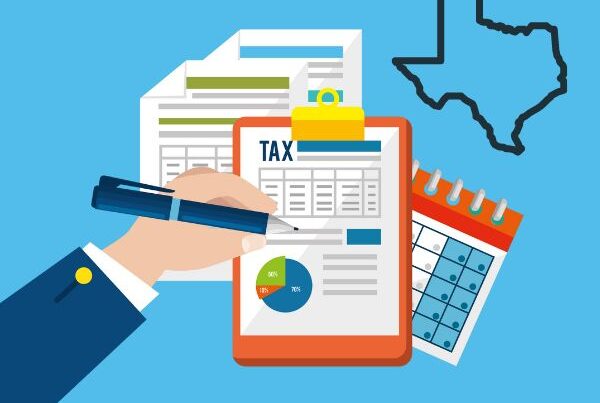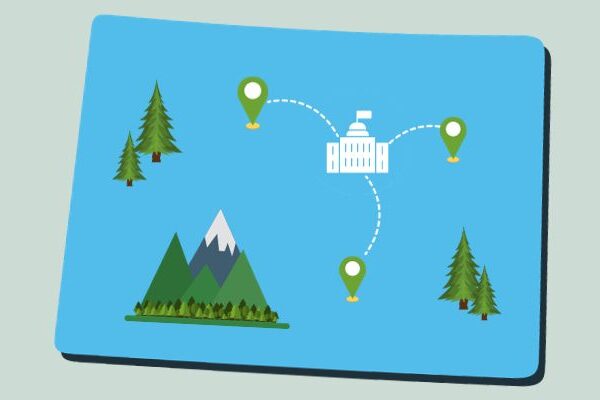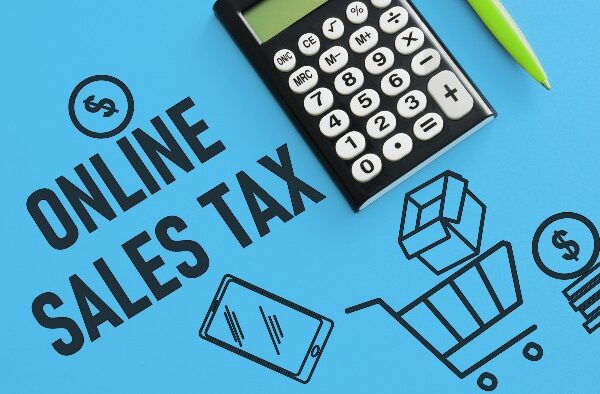Estimated reading time: 6 minutes
If there’s one thing we love more than talking about accounting, it’s sales tax and audit checklists (Why are you looking at us like that?). While they might sound dull, a well-thought-through list can evaporate the stress away from staying on top of your sales tax compliance. If you’re an online seller who’s wondering how to do sales tax, this article is worth a read.
We’ll be covering practically everything you’ll need to think about at the beginning of the year (or whenever it comes up) to make sure that your returns are ship-shape. We’ll be discussing 9 main points:
There you have it. That’s the entire sales tax audit checklist and you can safely stop scrolling now. Kidding! – the devil’s in the details.
One – Nexus Footprint
The holy grail of sales tax compliance is your nexus footprint. When you have nexus in a state, you need to collect sales tax and file returns there. Factors like sales volume, revenue, physical presence, and more can determine whether you do or do not have nexus in a given state. You can learn more about nexus compliance for online sellers here.
It’s important to stay on top of your nexus status year-round, but it’s worth emphasizing that events like Black Friday, Christmas, and New Year sales can change your circumstances pretty quickly. A high volume of sales is rarely a bad thing, but step one on your “how to do sales tax” checklist should be making sure that everything is in order.
As we all settle into the new year, now is a good time to look back over your prior year of sales. This data is usually a great indicator of where you have nexus and which new states you need to pay attention to.
For a list of nexus thresholds by state, download our 10 Steps Sales Tax Guide here. There is an updated list at the end.
Two – Product Taxability
If you’re selling day-to-day household property, then you might not have to stress too much about this one. Once you start selling anything more specialized or service-based, however, it’s time to dust off states’ tax codes. A host of new exemptions, rules, and nuances are ready and waiting in 2023. Many of these became effective from January 1st.
The list below is just a few examples of the kinds of products that are affected in certain states:
- Software as a service
- Farming equipment
- Some food products
- Supplements
- General groceries
- Certain machinery
The top of the year is a fantastic time to review your product taxability across all your SKUs.
Three – Exemption Certificates
No one likes the “a” word, but it’s way better to be prepared for when it comes. An audit can be super stressful for online sellers of any size. This is especially true if they don’t have the exemption certificates they need.
If you’re audited in one of your nexus states and they see you haven’t collected sales tax on a sale that you don’t have an exemption certificate for, you can wave all that saved money goodbye. You may also have to pay fines on top of this.
If your customer tells you that they are buying to resell or if they’re an exempt entity or any other exemption that would apply to them, they have to provide you with valid documentation. If they don’t, feel free to charge them tax.
Want our advice? At the beginning of the year, send out a massive email and contact all the people you’ve given tax exempt treatments to in the past and ask them to give you their most updated and valid documentation. This way, you are not liable if the state ever audits you.
If in doubt, speak with an accountant or consult your state(s)’ guidelines.
Four – Use Tax
You usually only have to worry about use tax in your home state, but do double-check to avoid pains down the road. Any products you’ve used rather than sold (i.e gifted in giveaways, used as samples, etc) need to be recorded in your return under “use tax”. This is usually on the same return as your sales tax and is one of those boring-but-important data points to keep track of.
Every time you plan a donation, giveaway, or the like, be sure to keep tabs on everything that’s used. When filing your return, use the cost of the goods, not the sale value.
Five – Colorado’s Retail Delivery Fee
Making sales into Colorado that make their way to your customers via motor vehicle? Buckle up for some fresh excitement cause you need to learn about the state’s new (as of July 1st, 2022) retail delivery fee. If it came in on a motorized vehicle, you need to charge and remit back to the state an additional 27 cents per purchase. It’s an easy return, but the state is enforcing it.
Your safest bet is to charge that 27 cents on each of your orders going into a customer in Colorado, unless you can guarantee your products are coming by bike, air, or reindeer.
Six – International Sales
International clients are a boon for the bank account but a bane for the tax return. The good news is that with the right help, it’s not too tricky to master your international taxes. A significant chunk of our clients have asked us to help them to register in Canada and Europe because they’re expanding their sales.
International markets can have very specific rules for remote sellers that need to be navigated carefully. Get in touch with us if you need some guidance.
Seven – Sales Tax Renewals
Some states can be pretty brutal with their yearly renewal laws. Many require sellers to renew their sales tax every single year. Some require a fee, others don’t. Either way, it’s important to make sure you know which of your nexus states have this tiresome requirement.
Our sales tax checklist pdf also includes a list of all these states for your convenience!
Eight – Sales Tax Portal Updates
When most people hear “portal” they picture fun science-fiction. Not accountants – we roll our eyes as we remember all the antiquated, esoteric tax return solutions used by states across the country (some aren’t actually that bad, but still!).
The point is, some states are migrating their portals to new solutions. If you’re in Maine, Maryland, or Pennsylvania, for example, you need to be ready for some changes. You’ll have until Q2 of 2023 but the clock is ticking. It’s a good idea to start downloading and migrating all your transaction data now.
9 – Aggressive States
Some states are so aggressive with their sales tax policy that some sellers prefer to avoid having nexus with them altogether. Read up on the details for all of your nexus states (duh), but the list below contains the real tricky ones:
- California
- Texas
- Wisconsin
- Maine
- Massachusetts
- Florida
- Illinois.
If you want to talk about how to do sales tax in a given state, you can schedule a consultation with us.
If you’d like to watch the updated for 2023 video where Kexin explains all this in a bit more detail, you can watch that here:
Get On Top of Your Sales Tax Today
Download this sales tax audit checklist (updated for 2023) from us if you want to keep the information from this article to hand. It’s a sales tax checklist that contains everything you’ll need to tame the sales tax beast!
And if you’re ready to hand your sales tax compliance over to the experts, let us know. We do sales tax all day, every day, and we’re happy to take it off your hands.







